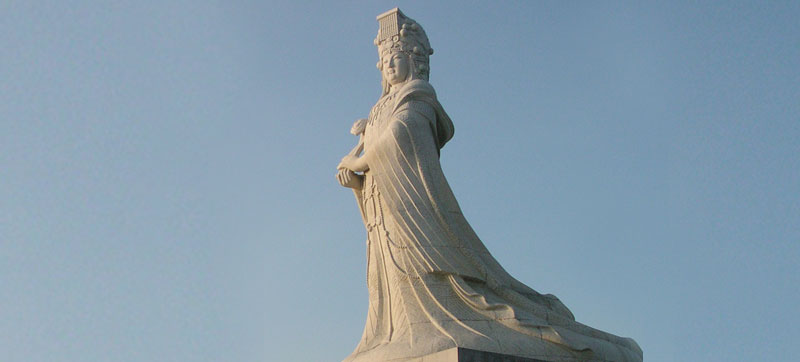The Cultural Edge: Part Seven of a Seven-Part Series on the Ocean Edge
Claude Piché on Unsplash
Part seven of a seven-part series on what happens at the ocean edge: from the real to the symbolic
Walking the beach, you can see the parallel ridges of sand, shaped by the wind and waves - edges - critical lines of meaning that we have been addressing during the last seven weeks. Hard Edge. Soft Edge. Working Edge. Leisure Edge. Security Edge. Political Edge. We come finally to the edge wherein all these themes come together - the Cultural Edge: that length of significance that extends coastwise worldwide and unites all things human and oceanic for all time.
In culture, we aggregate every aspect of interaction with Nature and each other - through music, art, religion, psychology, and celebration. We acculturate through the exchange of goods, peoples, and ideas, and every nation, every coast has its multiple examples of how this unfolds as discovery and practice through history. Today, there are myriad modern festivals by the sea - rendezvous of tall ships and heritage vessels, festivals of nautical dance, music, and craft. There are vibrant religious events associated with the sea.
The most astonishing religious event I ever witnessed was a celebration of Mazu, a young girl from the south coast of China, who became an icon of fishing, survival, and renewal that is worshiped to this day. In central Taiwan, I was immersed in a pilgrimage of Mazu followers who converged by the thousands at a Confucian Temple to parade replicas of Mazu in palanquins, burn sacrificial money in a fire that roared from the donation furnace, flagellate themselves in atonement for past sins, and explode so many rounds of fireworks that the streets were without light and the post-explosion paper remnants were knee deep throughout the town. This is just one example of many: water temples on the beaches in India, relief carvings of ocean monsters in Australia, the abandoned wrecks of ships, bones suddenly revealed by some extreme weather event, freeing the history there to new awareness and understanding.

Mazu, Chinese sea goddess, a tutelary deity of seafarers including fishermen and sailors. Worship of Mazu has spread throughout coastal Chinese regions and throughout Southeast Asia. Credit: Wikimedia Commons
We read poetry of the sea; we build sand castles that are the evocation of our dreams, young and not so young; we tell of adventures aboard ships and in foreign places wherein we frame questions of survival and good versus evil. There is no question that the dynamism of the sea resonates with the water we are composed of - those waves and oscillations finding some harmonic coincidence in our bodies and, yes, our souls.
There is a physics there, and a chemistry, that augments the biology and physiology to make a whole persona, a psyche, that has the fluidity and resilience and openness to change that is the essence of water. We treat water with water. We hydrate and irrigate our bodies, just as we do the most complex plants we know. We are water gardens, like coral reefs, assemblages of living things, bizarre and wonderful, microscopic and invisible, that taken together comprise who we are as individuals, families, communities, and nations. Rank after rank of ocean people, cleaving to the water's edge. We are peaceful lakes, running streams, angry storms that are circulating like weather highs and lows, generation to generation, parent to child, lover to lover, longing to be cleansed and to be free.
It's all one great mixing. We should no longer accept the edge between land and sea as a line exclusive, but rather as a line inclusive, bringing us all together in one wondrous seven billion-plus global population of Citizens of the Ocean who won't allow the autocrats, hoarders, manic consumers, and agents of fear to degrade our marine world, our fresh water, our watersheds, or our water selves, to pollute the collective essence of our humanity and civilization. Come over the cultural edge; become an ocean person who knows that one drop augments another, that solution protects from dissolution, and that commitment to solve and dissolve our problems into healthy, harmonious waves of reaction and action will accrue to the benefit of all kinds. The sea connects all things.
PETER NEILL is founder and director of the World Ocean Observatory and is author of The Once and Future Ocean: Notes Toward a New Hydraulic Society. He is also the host of World Ocean Radio upon which this blog is inspired.
- Login to post comments
-


